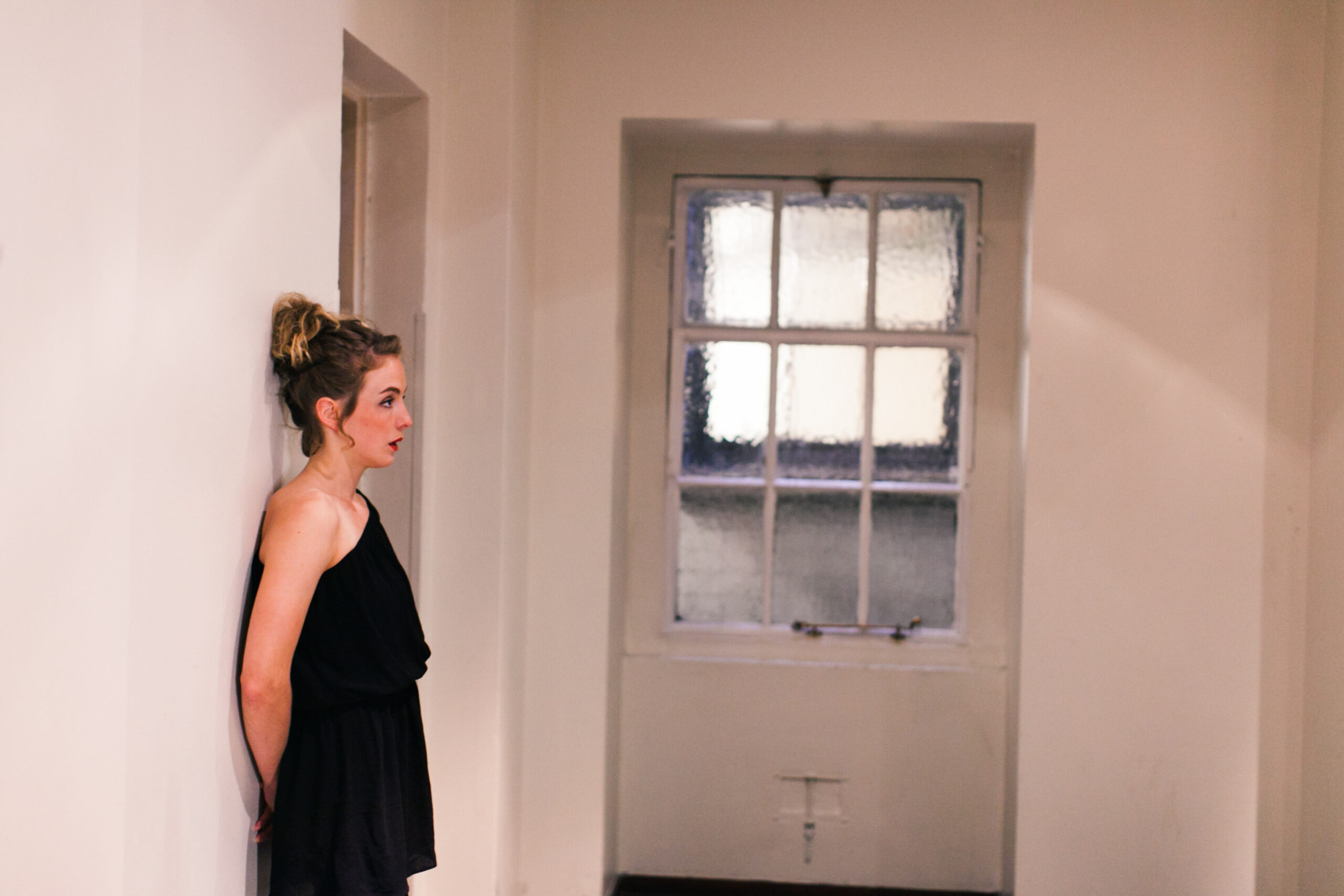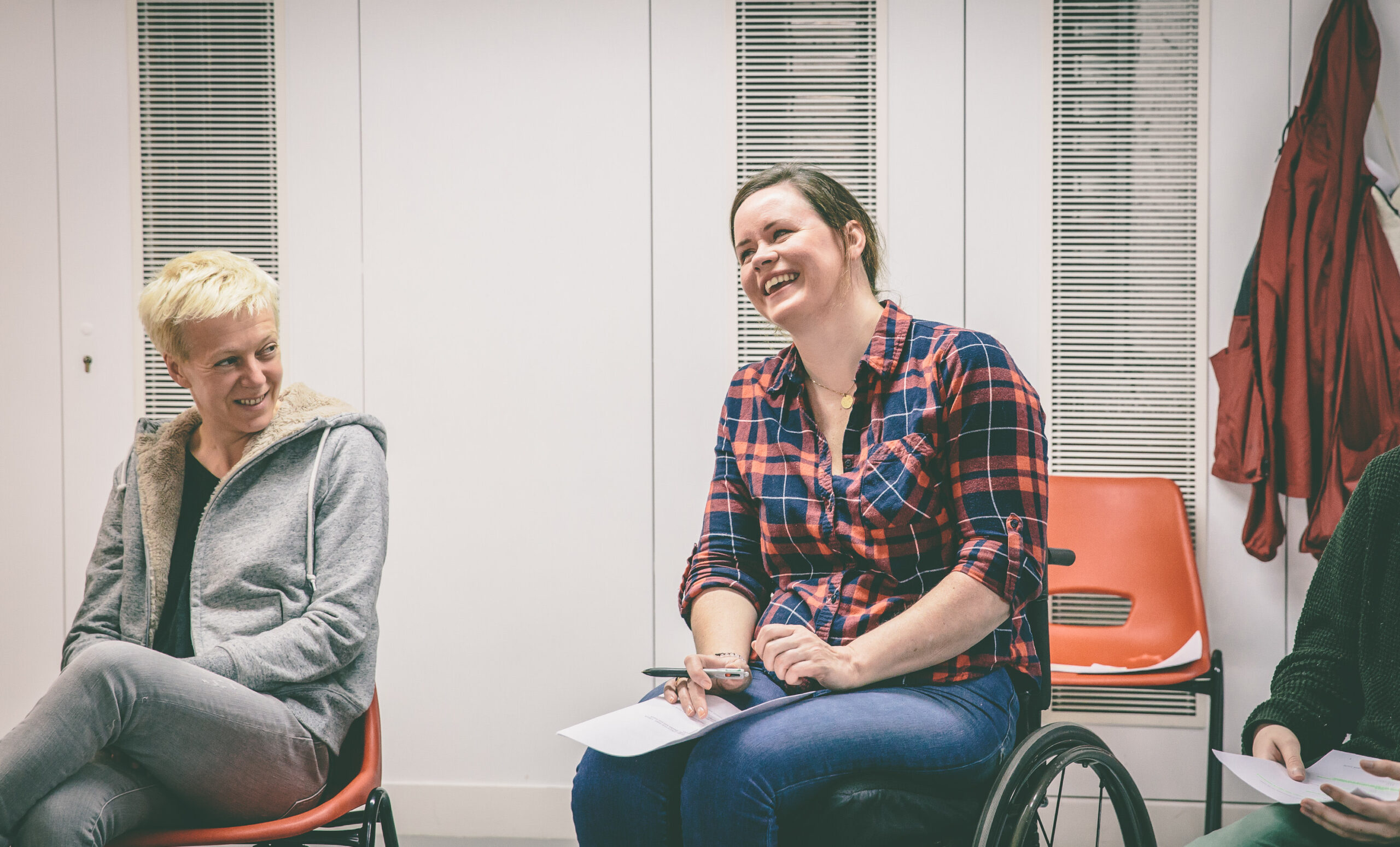Ways of working through the ups and downs of unpredictable acting life
Everyone has a crisis in their career [at some point] – if you get through, you’ll be a better artist.
At our recent Open House, Dr Jane Oakland worked through a technique for breaking down the aspects of life that are stressing you out right now, so you can start to make positive changes to your overall well being.
Jane describes ‘well being’ as the balance between resources and challenges – having the psychological, social and physical tools to react and respond to whatever happens in life. When we feel overwhelmed by the demands placed on us, be they a never ending list of things to do, uncertainty about the future, practical difficulties, illness, or anything else, stress can negatively impact an actor’s ability to perform. It’s a tough industry at the best of times, so arming yourself with the best tools to work through the unpredictability that comes with the job is really important.
Start by setting yourself aside ten undisturbed minutes…
1. List out all your specific worries
These can include almost anything – great or small. For instance: ‘What if I can’t pay the rent?’ or ‘What if I am rejected?’ can be examples. Try not to self-police about what ‘counts’ or ‘doesn’t count’. Just go for it, even if it seems tiny, or really vague. List it down anyway.
2. Put them into categories
Draw yourself two columns to slot the worries into, or highlight/code them into one of two categories: what you can control and what you can’t control. Some might be a bit of both. That’s okay. Just make sure to categorise all of them – the more you can slot into one of the two categories, the better.
3. Take another look at what you can control
Now that you have a better idea and a visual representation of everything that’s on your mind, it’s time to have another think about the things you can control. What is it about each of them that’s within your power to change or affect? The important thing to remember here is that, though they are in your control, it is not necessarily your fault they are stressful. Focus first on what you can do about each item on that list. Remember: you can control your perception, preparation and decision making.
4. Think about how you perceive them
Do you think of the item as within or without your control? Your perception is very important to how you handle each stressor.
5. Prepare for success
If you know for a fact that items on your list could be minimised in stressfulness by simply getting in a few more hours of line-learning, or booking a workshop, brushing up on a particular skill, or asking for help from someone, give yourself that extra preparation time. Often, it’s the feeling of a sudden build up of things that are too hard to manage all at once that causes a sudden spike in stress and anxiety. Prepare for success by noting down next to the items you can control what it is you might do extra to prepare for them resurfacing in future.
6. Cut yourself some slack: decision-making is tough!
While you can acknowledge that certain things are within your power, and you can make better decisions in future about how to tackle the things that stress you out, don’t waste time beating yourself up about the past. While reflecting on what you can do better next time can be helpful, try to keep in mind that you made the best decisions you could at the time – with the information you had at the time. Now, you have the power to change your next attempt to tackle stressful things: you can prepare better, perceive them differently and make new decisions about them, going forward. You can do this!
Read more about wellbeing and mental health on Spotlight.
Jane Oakland is Psychology Module Lead at UCL on their Performing Arts Medicine Msc, Performance Coach at Birmingham University and a BAPAM trainer and practitioner. She runs a private practise giving psychological support to all performing artists. Prior to this Jane worked as an opera singer for 35 years in UK and Holland. For more information see www.stresspoints.co.uk












